Since 2000, the Akshaya Patra Foundation has been on a mission to fill more than just empty stomachs in India. This non-profit organization fights childhood hunger and empowers education by providing hot, nutritious meals to millions of underprivileged children every school day. Through a unique, centralized kitchen model, Akshaya Patra addresses a critical social issue at scale, ensuring that children have the fuel they need to learn, thrive, and reach their full potential. This case study delves into their inspiring journey, the impact they've created, and their innovative approach to social change. Read on to discover how Akshaya Patra is feeding hope, one meal at a time.
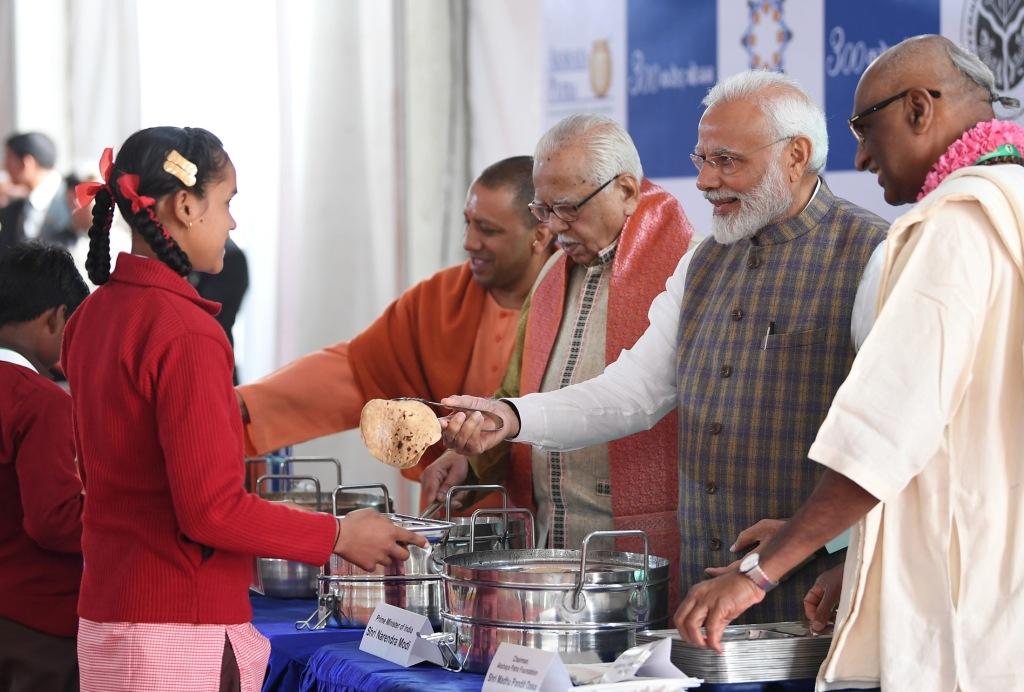 From Vision to Scale: Building a Network for Nourishment
From Vision to Scale: Building a Network for Nourishment
The Akshaya Patra Foundation is an independent charitable trust registered under the Indian Trusts Act 1882 (Reg. No. 154). We endeavour to implement the Government of India’s PM POSHAN Initiative (formerly the Mid-Day Meal Scheme) to solve at scale the overarching societal issues of classroom hunger and malnutrition in the country.
It is our firm belief that investing in child nutrition and education is one of the most effective entry points for human development. Driven by this belief, we strive to provide children with a hot, nutritious and tasty mid-day meal every school day as an incentive to come to school. Thus, the vision – ‘No child in India shall be deprived of education because of hunger.’
Since the year 2000, we have endeavoured to reach out to children with wholesome mid-day meals every school day by leveraging technology and effectively harnessing the potential of the Public-Private Partnership (PPP) model. By establishing an extensive network of kitchens and partnering with the Government of India, state governments, UT administrations, corporate houses and philanthropists, we have created a system to address a social cause on a massive scale. Our efforts are in direct alignment with two critical Sustainable Development Goals (SDGs): SDG 2 – Zero Hunger and SDG 4 – Quality Education.
Currently, we serve over 2.1 million children studying in 24,082 government and government-aided schools and Anganwadi centres across 72 locations in 16 states and 2 union territories of India.
The Initiative:
Akshaya Patra's mission is to ensure "no child in India should be deprived of education because of hunger." The key objectives are to address childhood hunger and increase access to education by providing hot, safe midday meals to schoolchildren. The beneficiaries are children from low-income families enrolled in government and government-aided schools across India. Akshaya Patra employs an innovative centralized kitchen model using streamlined operations and industrial processes to prepare and distribute the meals in a cost-effective manner.
Srila Prabhupada, the Founder-Acharya of ISKCON, once witnessed the disturbing sight of children fighting with dogs for scraps of food. Deeply touched by what he saw, he asked his followers to work towards a world where no one would go hungry, especially children. With this story of compassion as our inspiration, we started our school lunch programme in the year 2000 with the feeding of 1,500 children in five schools in Bengaluru, Karnataka.
Problem Statement:
Despite progress, India continues to grapple with high levels of poverty, food insecurity and childhood malnutrition. Despite making economic progress, India continues to grapple with alarmingly rates of childhood malnutrition which hamper human capital development. The latest NFHS-5 data reveals that 35.5% of children under 5 years are stunted (low height-for-age), 19.3% are wasted (low weight-for-height) and 32.1% are underweight across India. The prevalence of childhood malnutrition shows only marginal improvement over the previous NFHS-4 figures from 2015-16, highlighting the need for more concerted efforts. Malnutrition rates vary considerably across states, with children in rural areas and from lower socio-economic strata being disproportionately affected.
Childhood malnutrition has severe and long-lasting consequences. Addressing childhood malnutrition is crucial for India to harness its demographic dividend and achieve sustainable development. Continued high malnutrition rates undermine the country's human capital and economic growth potential. Strategic interventions are urgently needed to improve maternal and child nutrition through a multi-pronged approach focused on direct nutrition support, public health measures, poverty alleviation and behavior change. Poor nutrition adversely impacts childhood development, education outcomes and perpetuates the cycle of poverty.
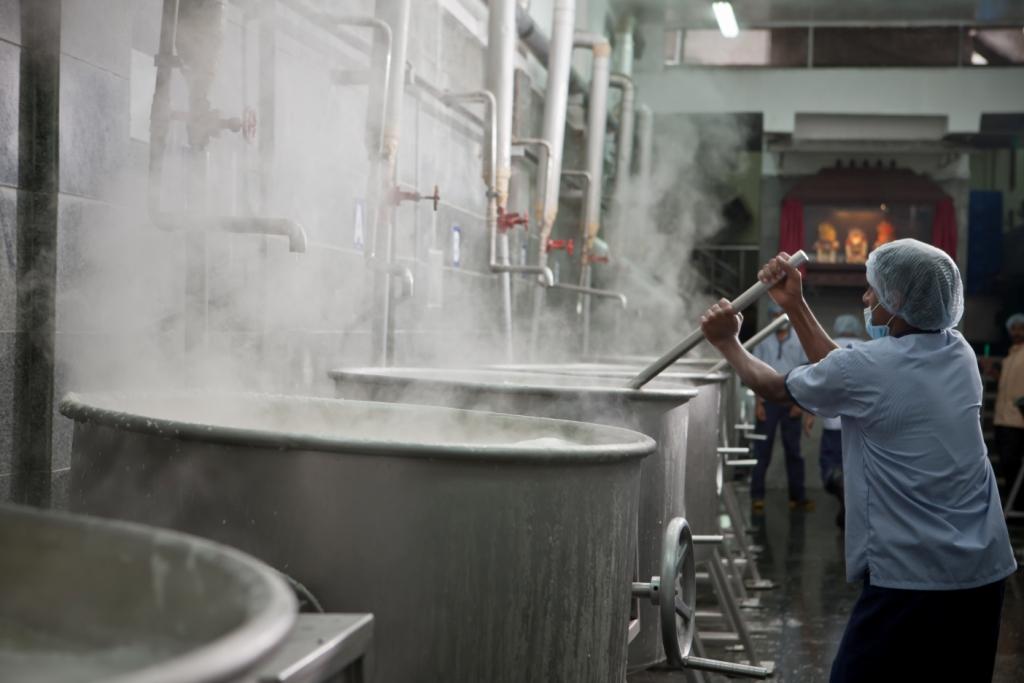 Solution Framework:
Solution Framework:
Akshaya Patra's centralized kitchen model leverages economies of scale and industrial food production processes to provide hot, hygienic midday meals in a cost-effective manner. The guiding principles are streamlining operations, continual process improvement, maintaining high food safety standards and maximizing outreach through collaborations with government, private sector, and communities.
Implementation Strategy:
Akshaya Patra started in 2000 by serving 1,500 children in 5 Bangalore schools. Relying on corporate/individual donations and government subsidies, it has grown systematically by setting up large, centralized kitchens in key urban hubs to cater to surrounding schools. Its kitchens follow standardized cooking protocols and leverage automation to maximize efficiency. Meals are distributed through a fleet of delivery vehicles to partnering government schools. Detailed planning, resource mobilization, and stakeholder engagement strategies enabled sustained expansion to kitchens serving 2.1 million children daily by 2024.
Measuring Success:
Akshaya Patra closely tracks operational metrics like meals served, children reached, schools covered and growth rates to gauge its increasing scale.
The 'SUCCESS EVIDENCE REPORT OF SCHOOL FEEDING PROGRAMS' published by IISc provides three case evidence on the success of the School Feeding Programme (SFP) and indicates the impact of the program. Analysis of TAPF data; a comprehensive literature study of school feeding programs across different countries, and analysis of the DHS data of 12 lakh children published by Indian Institute of Science.
Key Highlights of the reports are as follows :
1. 82% of the reviewed studies demonstrate positive impact on child health and nutrition by targeting micronutrient deficiencies that reduced the susceptibility of a child to infection. School meals provide sufficient calories and energy that help in dealing with iron deficiency resulting in reduced anaemia prevalence in child.
2. Regular consumption of MDM reduces the probability of a child being underweight and obese and increases the probability of being in the average weight and overweight category. Similarly, consumption of MDM increases the probability of being in average and taller height category.
3. Better diet significantly increases the probability of a child to move from being underweight to overweight, and from being small in height to being normal in height. Better diet also significantly increases the probability of a child to move from being poor in health to being healthier by significant reduction in fever, diarrhoea, and cough; and move from being anaemic to significant reduction in anaemia.
Challenges and Solutions:
A key challenge is mobilizing funds for capital expenditure required to construct new kitchens for expanding reach. Akshaya Patra overcomes this through robust fundraising efforts involving corporate/individual donors, foundations and government partnerships. It explores innovative models like cross-subsidization through commercial meal sales to achieve financial sustainability. Operational challenges like ensuring consistent food quality and safety at scale are addressed through continual process improvements, automation and stringent quality control protocols.
Apart from that, achieving sustainability is Akshaya Patra's top priority as it supports the foundation both in accelerating social development through its flagship school feeding program and its positive role in environmental stewardship. Akshaya Patra aspires to serve meals with love & care to combat hunger & its debilitating impact on the capabilities of our future generations, while continually innovating to ensure sustainably achieving our vision."
Scalability and Replication:
With an ambitious target of serving 3 million children of India by 2025, Akshaya Patra is exploring approaches like a hub-and-spoke model with centralized kitchens supplying semi-cooked meals to smaller spoke kitchens closer to new schools. There is also potential to leverage its model for feeding pre-school children through government's Anganwadi program. Akshaya Patra trains government entities and other NGOs, shares best practices and kitchen designs to enable replication.
Sustainability for the Akshaya Patra Foundation is multifaceted and achieving the same is an urgent matter that depends on various collaborative efforts. We are proud to be an entity in the Indian non-profit sector to adapt climate change conscious in our value chain. Despite being a non-profit, intend to be pioneers in sustainability initiatives, which are beyond compliance.
With this approach, Akshaya Patra intends to play a role in transforming the development sector to make it more sustainable. While engaging with industry leaders on Akshaya Patra’s Sustainability Framework, they acknowledged the effort towards sustainability. The efforts will accelerate the foundation’s work directly on SDG 2 – End Hunger, SDG 4 – Quality Education, SDG 6 - clean water and sanitation for all & SDG 7 - Ensure access to affordable, reliable, sustainable and modern energy for all. The industry leaders also appreciated Akshaya Patra in responsible by standardising the efforts being made toward sustainability.
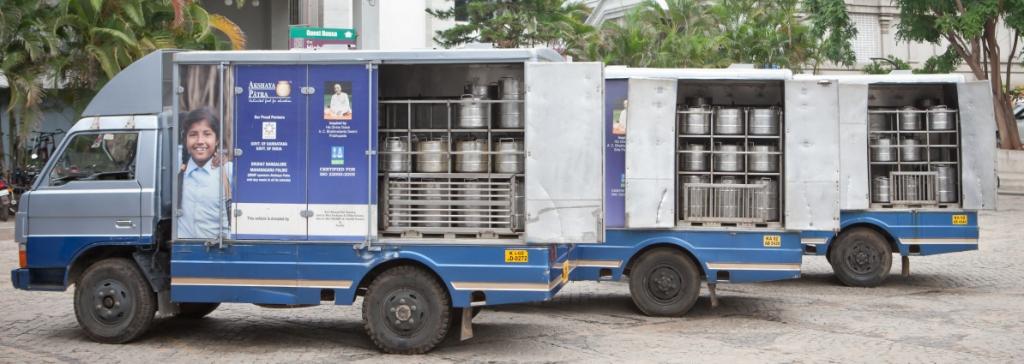
Recognition and Awards:
Akshaya Patra has received numerous accolades for its innovative model, quality control and operational efficiency in achieving its mission. These include being nominated as the Government of India's official training partner for the Mid-Day Meal program.
- Honoured with the recognition of ‘CSR COVID Relief Project’in the Gold category at #CSRHealthAwards
- Awarded the prestigious Mahatma Award for Social Good and Impact “Zero Hunger”
- Compass Group honors the Foundation for its incredible contribution towards the environment and society
- Awarded POSHAK ANAAJ AWARD 2022 for the efforts in millet promotion
- Honoured by Shri Manish Sisodia, Deputy Chief Minister of Delhi at India Today Happiness Award in the ‘NGO that brought the Most Happiness’ category
- Conferred with the ‘CSR Times Award 2022’ – Gold Category in the area of ‘Eradication of Extreme Hunger & Malnutrition’ at the 9th National CSR Times Summit and Awards 2022, New Delhi
- Honoured by Smt Smriti Irani, Minister of Women and Child Development of India as the ‘Gold Winner’ in the category of ‘Excellence in Social Initiatives - NGO/Not for Profit Organization’ at FICCI - 14th HealthCare Excellence Awards 2022
- Certificate of Merit presented at the 12th Edition of World CSR Day by Chairman of the World CSR Day Dr. Bhaskar Chatterjee, CEO, Anil Agarwal Foundation
- The foundation won Business World Social Impact Award basis its work being rendered to the society
Lasting Impact:
Akshaya Patra's journey exemplifies how strategic Public Private Partnerships (PPP) model between non-profits, corporations, communities and governments can drive sustainable solutions to pressing social issues like childhood hunger and access to education. Its centralized kitchen model demonstrates how industrialized processes and operational excellence catalyze scalable social impact. By investing in health and education of underprivileged children today, Akshaya Patra nurtures human potential to uplift entire communities, creating a ripple effect of social development across India.
Disclaimer: The information contained in this case study is courtesy of Akshaya Patra Foundation




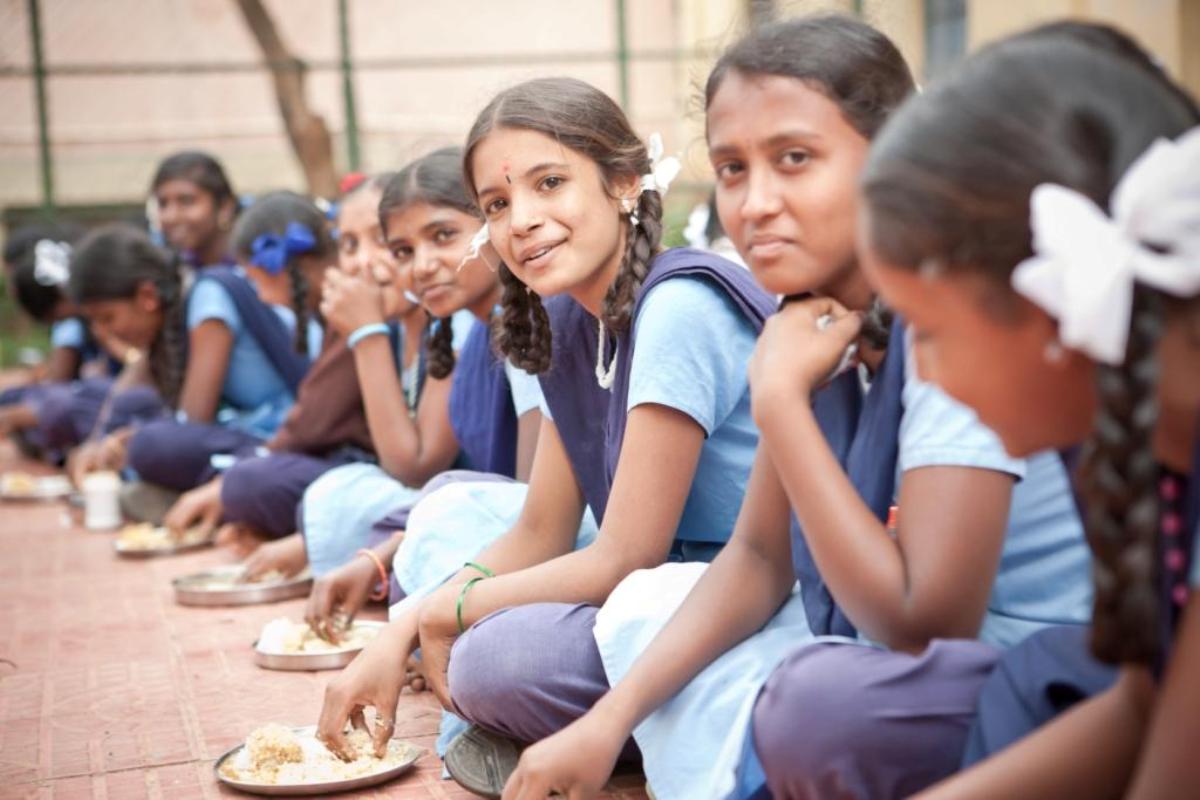
 From Vision to Scale: Building a Network for Nourishment
From Vision to Scale: Building a Network for Nourishment Solution Framework:
Solution Framework:
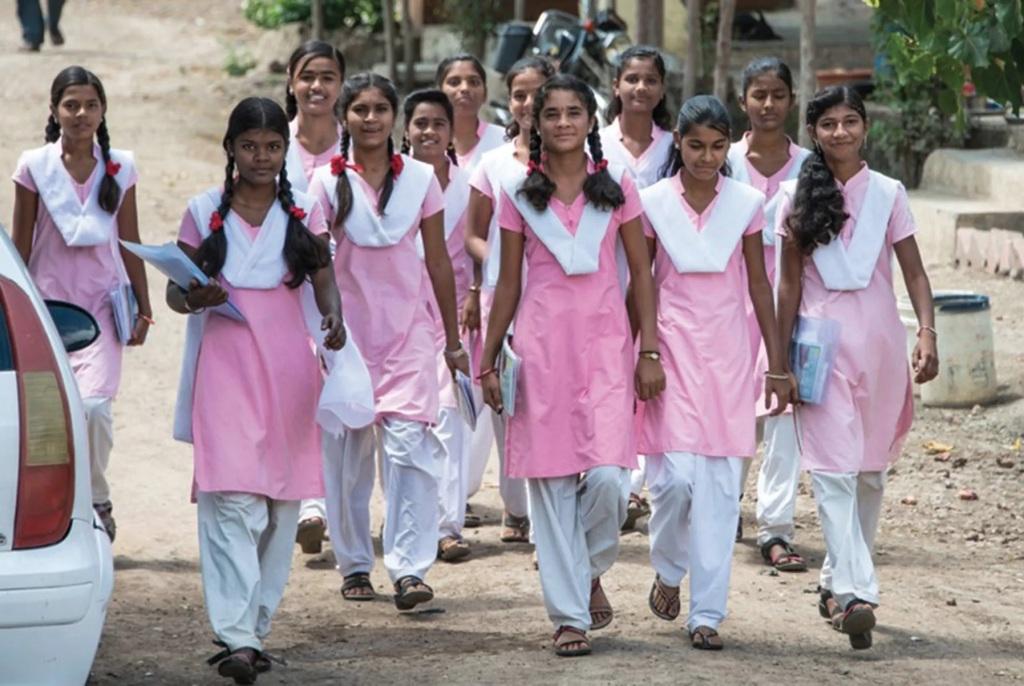


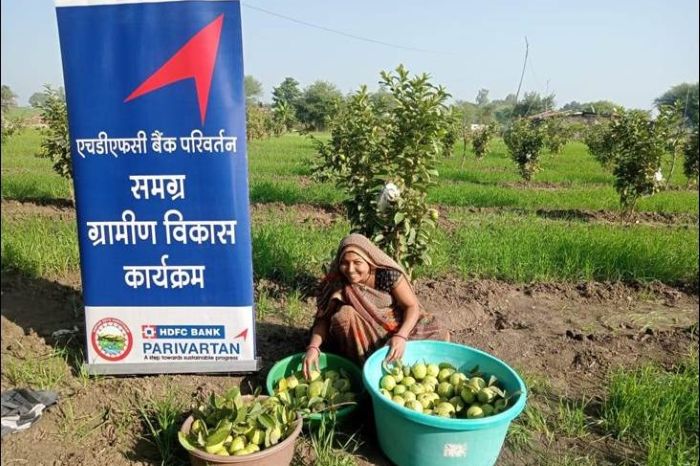
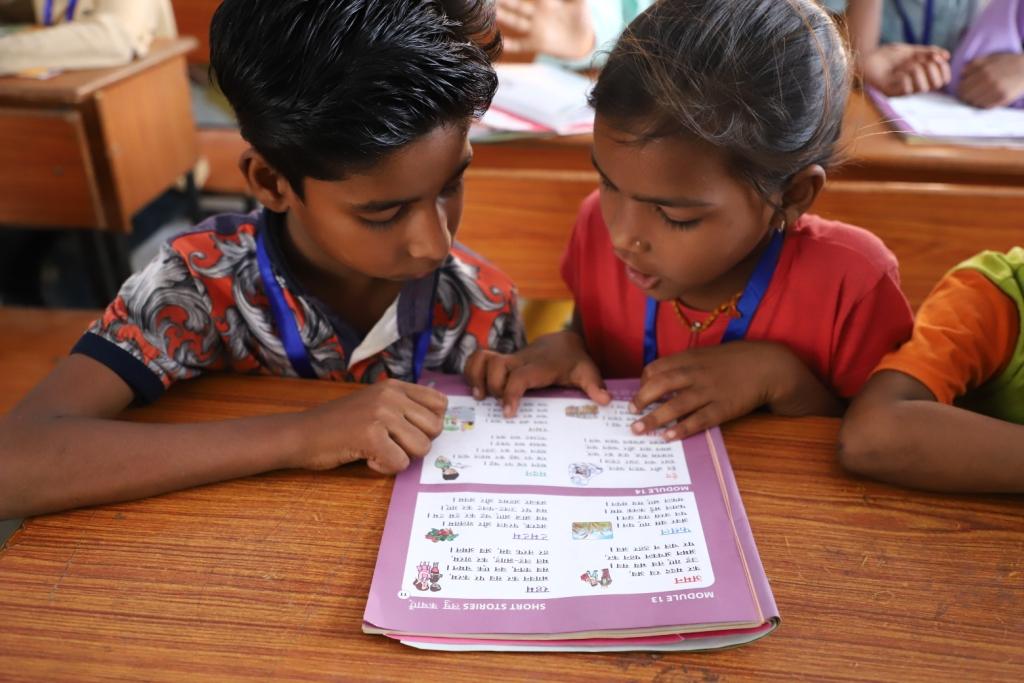
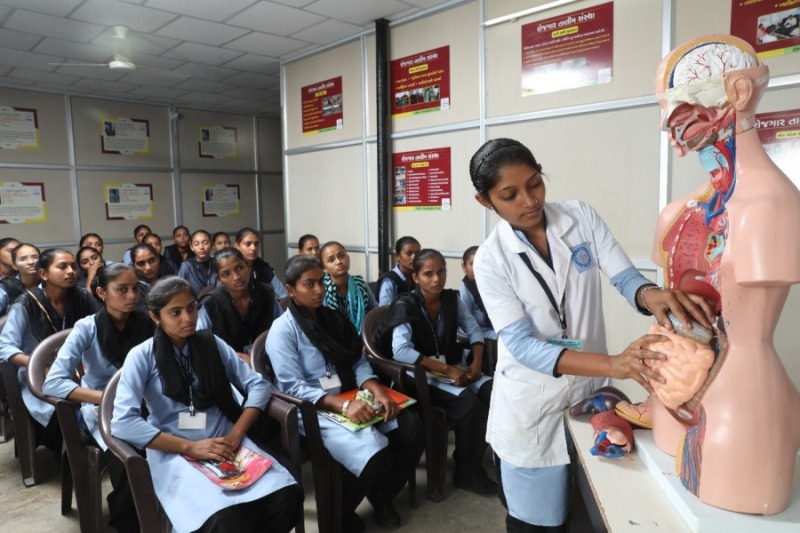

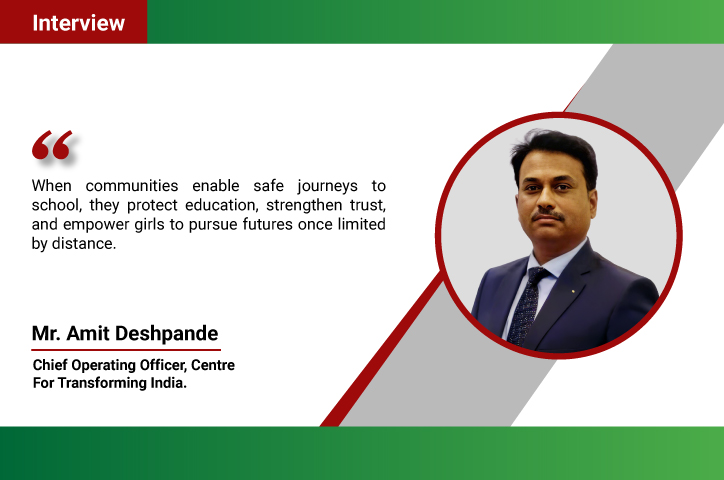
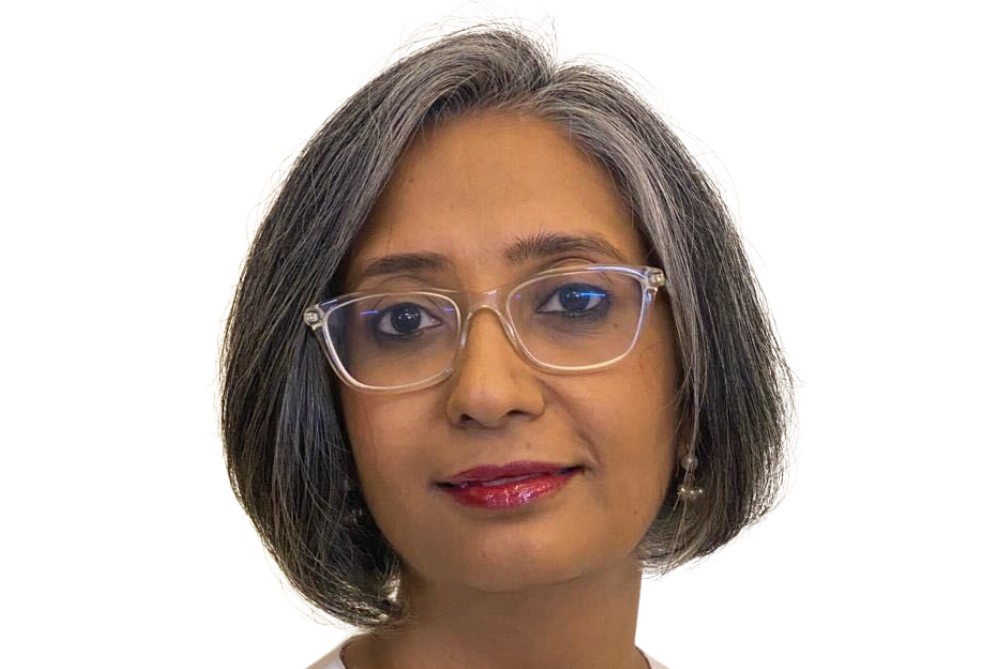





.jpg)



